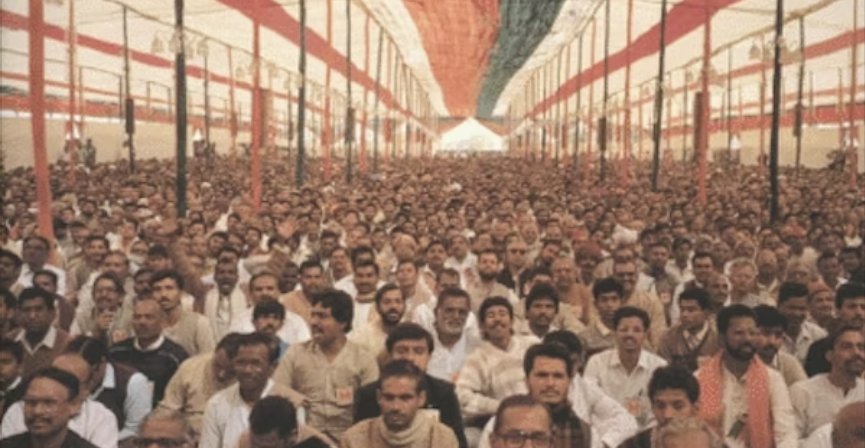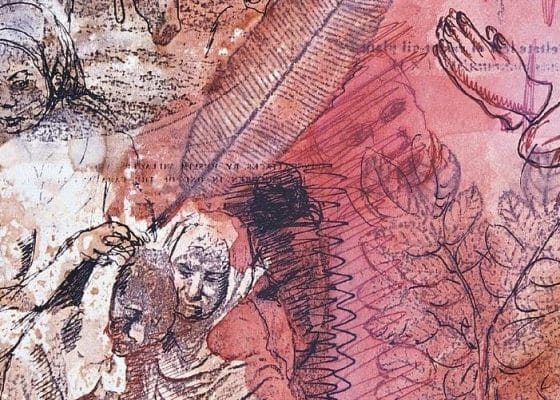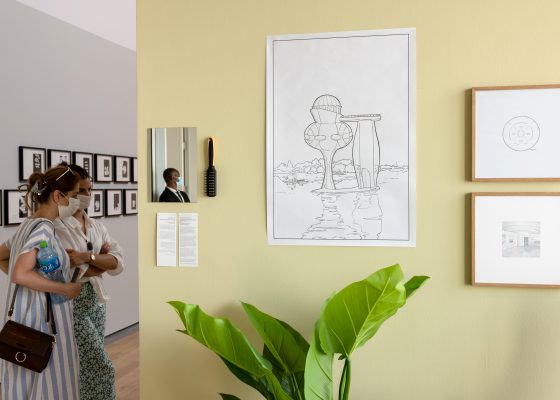Join us as we listen firsthand from Professor Thomas Blom Hansen within the programme of the exhibition Proposals for a Memorial to Partition in conversation with curator Murtaza Vali.
Having written and published extensively about the rise of Hindu nationalism in India, Professor Hansen centers his lecture under the following framework:
For decades after 1947, the realities and memories of Partition were locked away in family lore and in hushed talk in private settings. In public life, Partition was mainly referred to as a disaster, as a moment of madness that had to be overcome by building a modern nation. The political success of the Bharatiya Janata Party and its allies is, in large measure, a result of how effectively they tapped into these disavowed sentiments and portrayed Partition as a moment in an ongoing war to liberate Hindus from humiliation by Muslims. Today we see resonances of Partition everywhere – as metaphor, as structures of memory, as myth and fantasy, and embedded in repertoires of political speech and in rituals of public violence. To understand where India is today one must understand Partition.
Thomas Blom Hansen is the Reliance-Dhirubhai Ambani Professor of Anthropology, and Chair of the Department of Anthropology at Stanford University. He has written on Hindu nationalism, Hindu-Muslim conflicts, and urban politics in India, as well as melancholia, memory and cultural politics in post-apartheid South Africa. He is the author of The Saffron Wave. Democracy and Hindu nationalism in modern India (Princeton University Press 1999); Wages of Violence. Naming and identity in postcolonial Bombay (Princeton University Press 2001); Cool Passion. The Political Theology of Modern Convictions (Amsterdam University Press 2009) and Melancholia of Freedom. Social Life in an Indian Township in South Africa. (Princeton University Press 2012). His most recent book is The Law of Force. On the Violent Heart of Indian Politics (Aleph Books 2021). He is also the author of numerous articles and editor of a number of edited collections, most recently Majoritarian State. How Hindu nationalism is changing India (edited with C. Jaffrelot and A. Chatterji). London: Hurst and Co. 2019, and Saffron Republic. Hindu Nationalism and State Power in India, (Edited with Srirupa Roy). Cambridge University Press, 2022.
Murtaza Vali (he/him/his) is a critic, curator, and art historian based in Sharjah and Brooklyn. His ongoing research interests include materialist art histories, ex-centric minimalisms, ghosts and other figures of liminal subjectivities and repressed histories, the weight of color and contemporary art of the Indian Ocean littoral. A recipient of a 2011 Creative Capital | Warhol Foundation Arts Writers Grant for Short-Form Writing, he publishes regularly in various international art periodicals and in exhibition catalogues for non-profit institutions and commercial galleries around the world, including essays in forthcoming monographs on the work of Fahd Burki (Jameel Arts Centre/Mousse Publishing, 2023) and Seher Shah (Rizzoli, 2023). Vali is an Adjunct Curator at the Jameel Arts Centre in Dubai, where he curated the widely acclaimed inaugural group exhibition Crude (2018), which explored the relationship between oil and modernity across South West Asia. Other current and recent curatorial projects include: Proposals for a Memorial to Partition (2022-23), Jameel Arts Centre; Curator-at-large of FRONT International 2022: Cleveland Triennial for Contemporary Art (2022); (with Uzma Rizvi) Accommodations, the National Pavilion of Saudi Arabia at the 17 th Venice Architecture Biennale (2021); and Substructures: Excavating the Everyday (2020-22), a series of exhibitions about “intimate infrastructures” in the Gulf at Warehouse421 in Abu Dhabi.
Banner image: Partial view of The Saffron Wave book cover. Thomas Blom Hansen. Princeton University Press.
SEE ALL EVENTS


